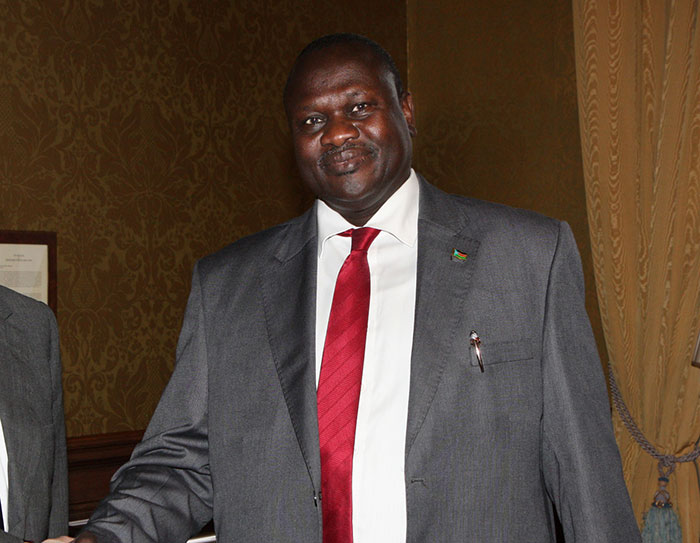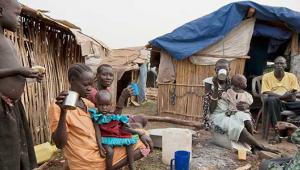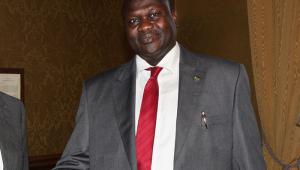web_riek-machar_8345739210_6d0202d6d2_o.jpg

South Sudan's rebel leader Riek Machar has been sworn in as vice president in line with the peace agreement. Credit: UK Foreign and Commonwealth Office
Machar had been due to arrive in the capital Juba on 18 April but didn’t turn up until Tuesday this week, putting the fragile peace agreement meant to end more than two years of conflict at risk and angering the international community.
Following Machar’s appointment, the United Nations peacekeeping chief yesterday said it could mark the opening of a new chapter for South Sudan.
“It is vital that parties should take this opportunity to show the genuine determination to move forward with the peace process,” Hervé Ladsous said in a briefing to the UN security council.
Machar, who fled Juba in 2013 after a dispute with president Salva Kiir that sparked civil war, said he was glad to be back in the capital and called for unity.
He referred to his long-time arch rival Kiir as his brother, and both stressed their commitment to ending a brutal and destructive conflict that has taken a serious toll on the country’s people and economy.
But with South Sudan’s economy at rock bottom and suspicion still rife among the previously warring parties, tensions are running high and the pressure is on to move forward with the UN-sponsored deal, agreed last August.
With the government almost bankrupt, inflation at more than 200% and millions of people in need of food, what happens next will be make or break for South Sudan.
If successful, it is expected donors will start to ramp up support and rescue the country from economic crisis.
The US announced today that in anticipation of the swift formation of a unity government, it will be releasing an additional $86m in aid for conflict-afflicted communities. It will deliver a range of supplies from safe drinking water to fishing and agricultural equipment.
But pulling the country’s economy out of distress will also require an adequate rescue plan from the new leadership, one that enables it to pay the South Sudanese army and the militia it has just absorbed, all of whom are expecting some dividends.
A failure to pay, or continued disagreements among the rebels regarding power-sharing allocations, could spark renewed tension between the two parties while some of their armies live side by side in Juba.
Civil war broke out in South Sudan in 2013, just two years after it gained independence from Sudan. It was triggered by a political power struggle between Machar, who was vice president at the time, and Kiir.
Machar was sacked after being accused of trying to organise a coup, sparking violence which eventually developed into full-blown conflict divided along ethnic lines.
Tens of thousands of people were killed and more than 2 million were driven from their homes in the two year civil war.












